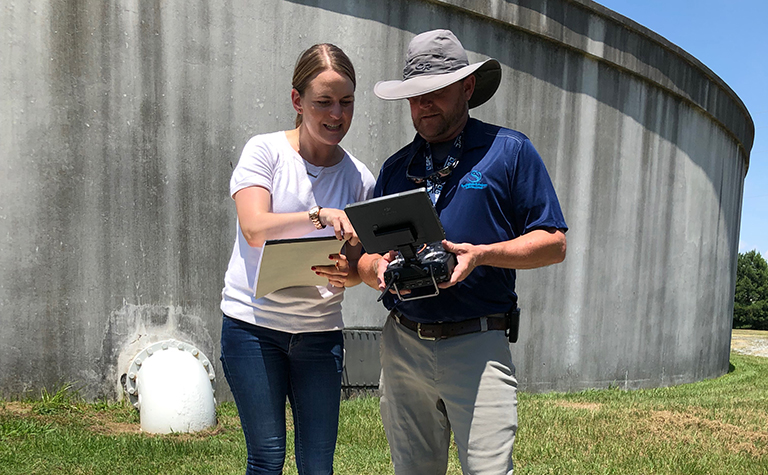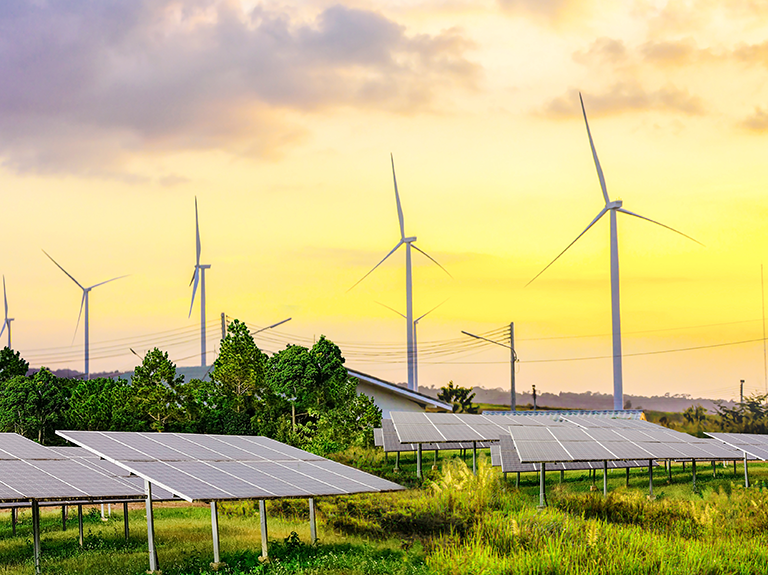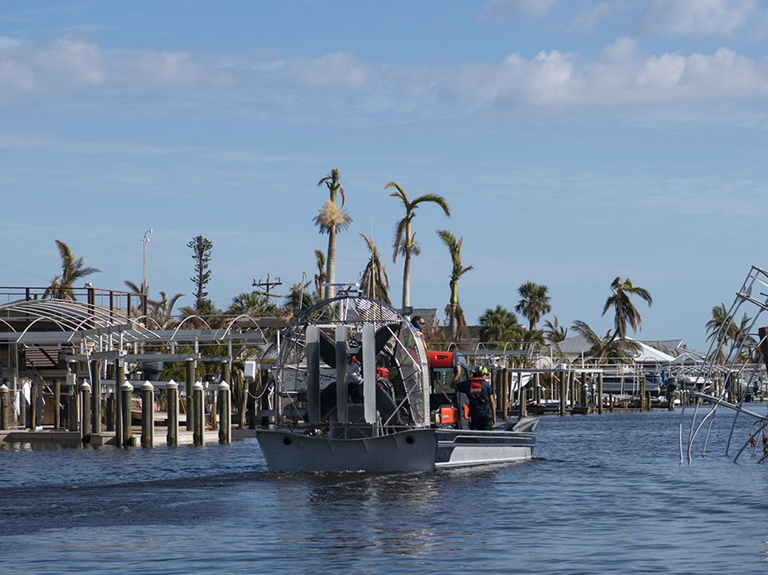Diving Deep on Drones and Water Tanks: A Conversation with EDF Climate Corps Fellow Anneliese Gegenheimer

This summer, AT&T once again teamed up the Environmental Defense Fund’s (EDF) Climate Corps program, bringing us our 11th Fellow. The program connects organizations with a graduate student who brings fresh perspective and new insights to help work toward our sustainability goals.
We were excited to have Anneliese Gegenheimer join the Smart Cities team in Atlanta. Anneliese helped our team do a deep dive on a specific use case – using drones to enhance water tank inspections – that speaks to the vast opportunities to leverage tech to address sustainability challenges. Before heading back to Johns Hopkins to finish graduate school, Anneliese sat down with us to talk about her time at AT&T.
Can you tell us a little about your background – where are you from and what led to your career?
Anneliese: I’m originally from Columbus, Ohio, and went to undergrad at the University of North Carolina at Chapel Hill. After graduation, I worked with the IBM Watson group before deciding to go back to graduate school to learn how to think like a policymaker, enhance my quantitative skills, and renew my passion for China. A joint program through Johns Hopkins was a perfect way get the new perspective I was looking for. I spent my first year studying in Nanjing, China and my second year at Johns Hopkins School of Advanced International Studies (SAIS) in Washington, DC. I’ll graduate in December with concentrations in Energy and the Environment and International Economics.
What drew you to the Climate Corps fellowship program?
Anneliese: I’m interested in how companies and cities think about and approach climate change, as well as how tech will play a role in future energy transitions. The program gave me a chance to explore that while applying what I’ve learned in the classroom. I was excited to be matched with the Smart Cities team at AT&T as it gave me a chance to engage with both the private and public sectors and see first-hand how technology can drive both environmental and economic benefits.
Tell us a little bit about the project you’re working on with the Smart Cities team.
Anneliese: I’m working with the Internet of Things (IoT) and Corporate Social Responsibility (CSR) teams to develop a case study on using drones for water tank inspections. It’s been a headfirst dive into a cutting-edge industry. I’ve had the chance to interview over 25 water utilities and water and drone experts around the country to understand the industry. I also worked with one of our clients to quantify the environmental and economic benefits of using drones and remotely operated vehicles (ROVs) –published on AT&T’s 10x site – and created a market analysis on how AT&T can position itself in the space.
What was the most rewarding aspect of your experience?
Anneliese: Being challenged to think more deeply about environmental issues that I care about in the context of AT&T’s business was an invaluable experience. Having the opportunity to interview water utilities and other experts around the U.S. helped me gain not only on-the-ground insights, but also develop relationships that will extend beyond this project. Finally, learning how to apply my past professional and educational experiences in technology and consulting to an industry I knew nothing about was incredibly rewarding.
Did anything about surprise you while working on the project?
Anneliese: I was not expecting to become so interested in water issues, water tanks and inspections. I now find myself reading articles on these topics and subscribing to multiple newsletters so I can stay informed.
More importantly, I was impressed by how dedicated AT&T is to the communities where it works. AT&T invests a lot of time and effort to stay connected to their needs and engage with the complex ecosystem of state and local governments, which creates opportunities for the Smart Cities team to use its expertise and solve challenges for cities around the world.
What advice would you give to a future EDF fellow?
Anneliese: The time flies - make a list of goals that reflects what you want to get out of the fellowship. It’s a chance to reach out to and learn from numerous experts about your project topic. Also, take time to understand different parts of AT&T’s business. The more you understand the business, the more you’ll be able to connect your project in a way that helps AT&T achieve their sustainability goals.


